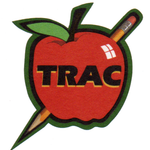
New School Year, Strong Afterschool Program: Tips from a Veteran Director
The beginning of the school year is one of the most critical times for afterschool programs. How you launch sets the tone for everything that follows—staff morale, student engagement, parent trust, and even compliance with your grant. As a veteran afterschool program director, I’ve learned that small, intentional steps in the first few weeks can create a strong foundation for the entire year.
Why the Start of the Year Matters
Families, staff, and students are all adjusting to new schedules, expectations, and routines. Your program can serve as a stabilizing force if you start with structure, clear communication, and a welcoming environment. A strong launch also shows parents and funders that your program is organized, effective, and committed to student success.
Do’s and Don’ts for a Strong Start
Do:
-
Hold a staff orientation to align expectations and review grant requirements.
-
Communicate early and often with families—share schedules, rules, and contact information.
-
Establish routines for students from day one (snack, homework, enrichment, dismissal).
-
Track attendance carefully; early records matter for funding and compliance.
Don’t:
-
Wait until issues arise before setting behavior expectations.
-
Overload students with too much structure on day one; build up gradually.
-
Forget to document your processes—auditors often review beginning-of-year practices.
-
Neglect relationship-building; students need to feel known and welcomed.
Best Practices for Back-to-School Success
Start the year with a family orientation night to introduce staff, outline program goals, and answer parent questions. Create clear behavior expectations with student input to build ownership. Make the first week engaging by blending fun activities with academic support so students don’t feel like afterschool is “just more school.” And don’t forget staff—check in with them regularly to address challenges early.
Focus on Communication
Parents want to feel informed and connected. Use multiple channels—emails, text reminders, flyers, or apps—to share updates. Encourage two-way communication by giving families easy ways to provide feedback. The more informed parents feel, the more likely they are to trust and support your program throughout the year.
Keep Grant Requirements Front of Mind
Beginning-of-year compliance is critical. Review staff-to-student ratios, required documentation, and training mandates. Confirm attendance tracking systems are in place and aligned with your grant. Starting strong with compliance reduces stress later during monitoring visits or audits.
Suggested Kickoff Questions for Families
At the start of the year, ask families questions like:
-
What goals do you have for your child this school year?
-
What challenges should we be aware of—academically, socially, or behaviorally?
-
What communication method works best for your family?
-
How can we support your family schedule or needs?
-
What enrichment opportunities would you like to see offered?
Building Momentum for the Year Ahead
The first month sets the stage. By being proactive with communication, consistent with routines, and intentional about compliance, you’ll create a strong foundation for a successful afterschool program year. When students and staff feel supported from the start, your program will thrive all year long.
Final Thought
The back-to-school season is a chance to show families, staff, and funders that your program is reliable, enriching, and impactful. Start strong, stay consistent, and keep your mission at the heart of everything you do. A strong launch doesn’t just prepare you for the school year—it builds long-term trust and success.
